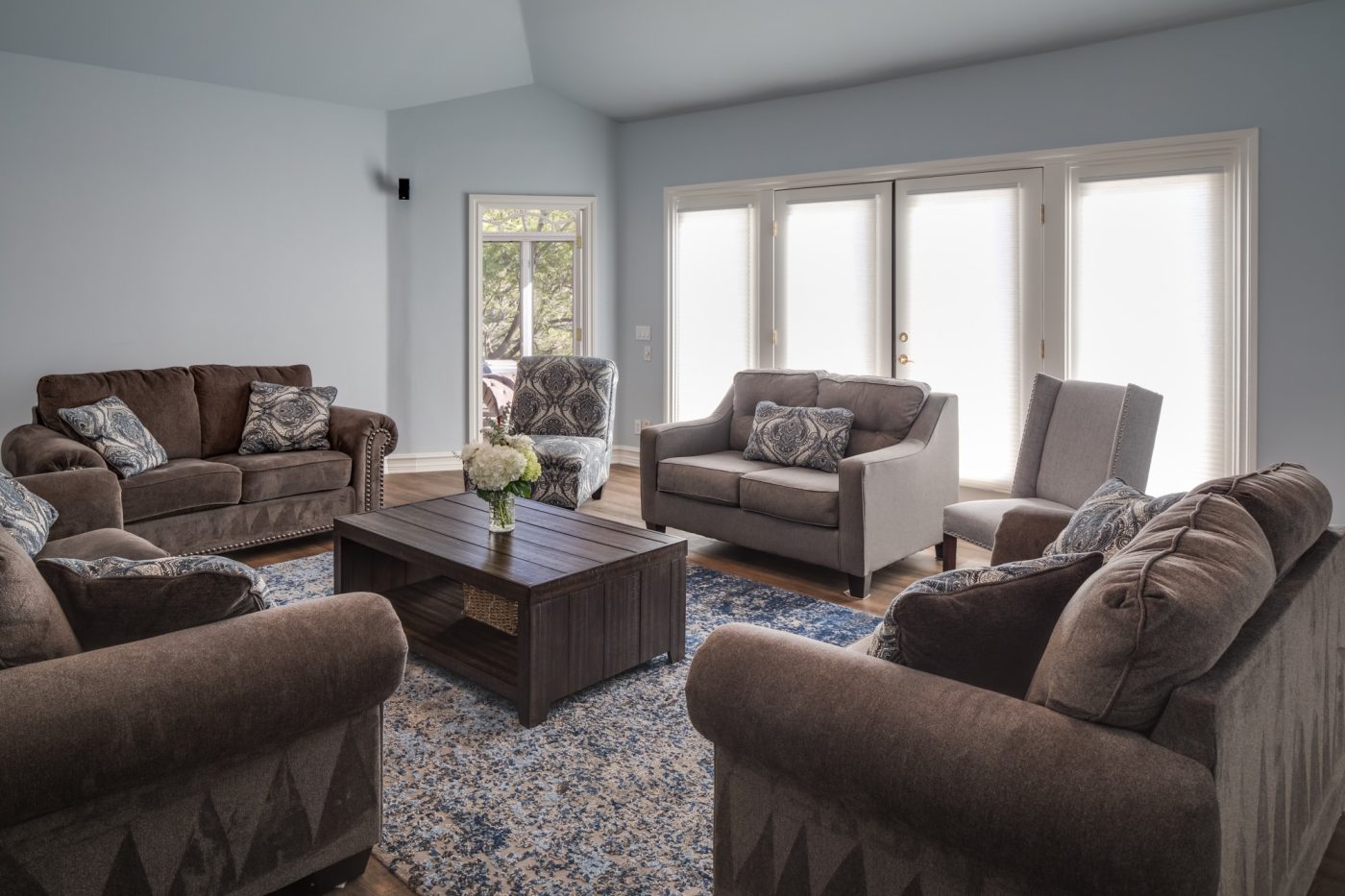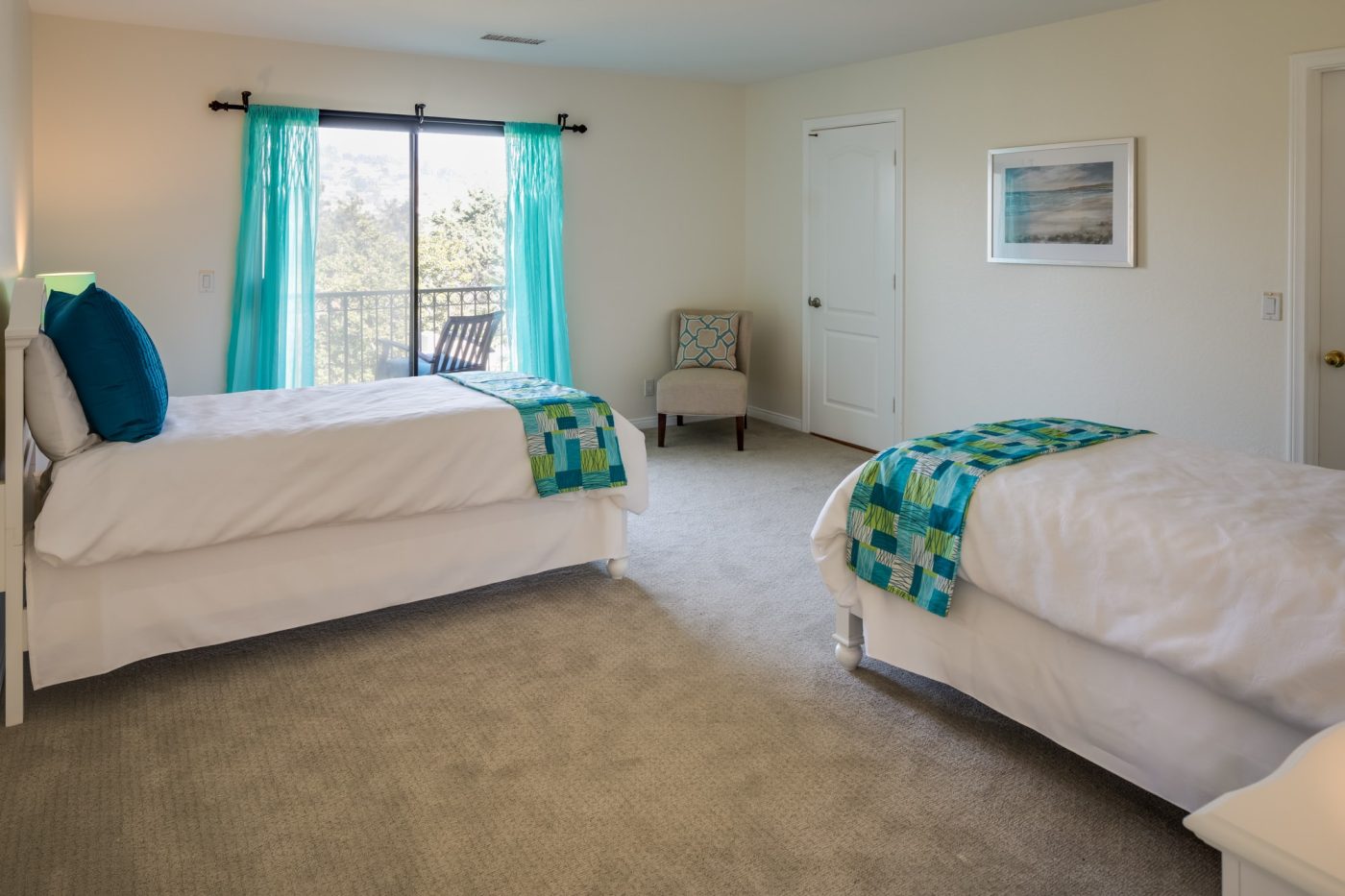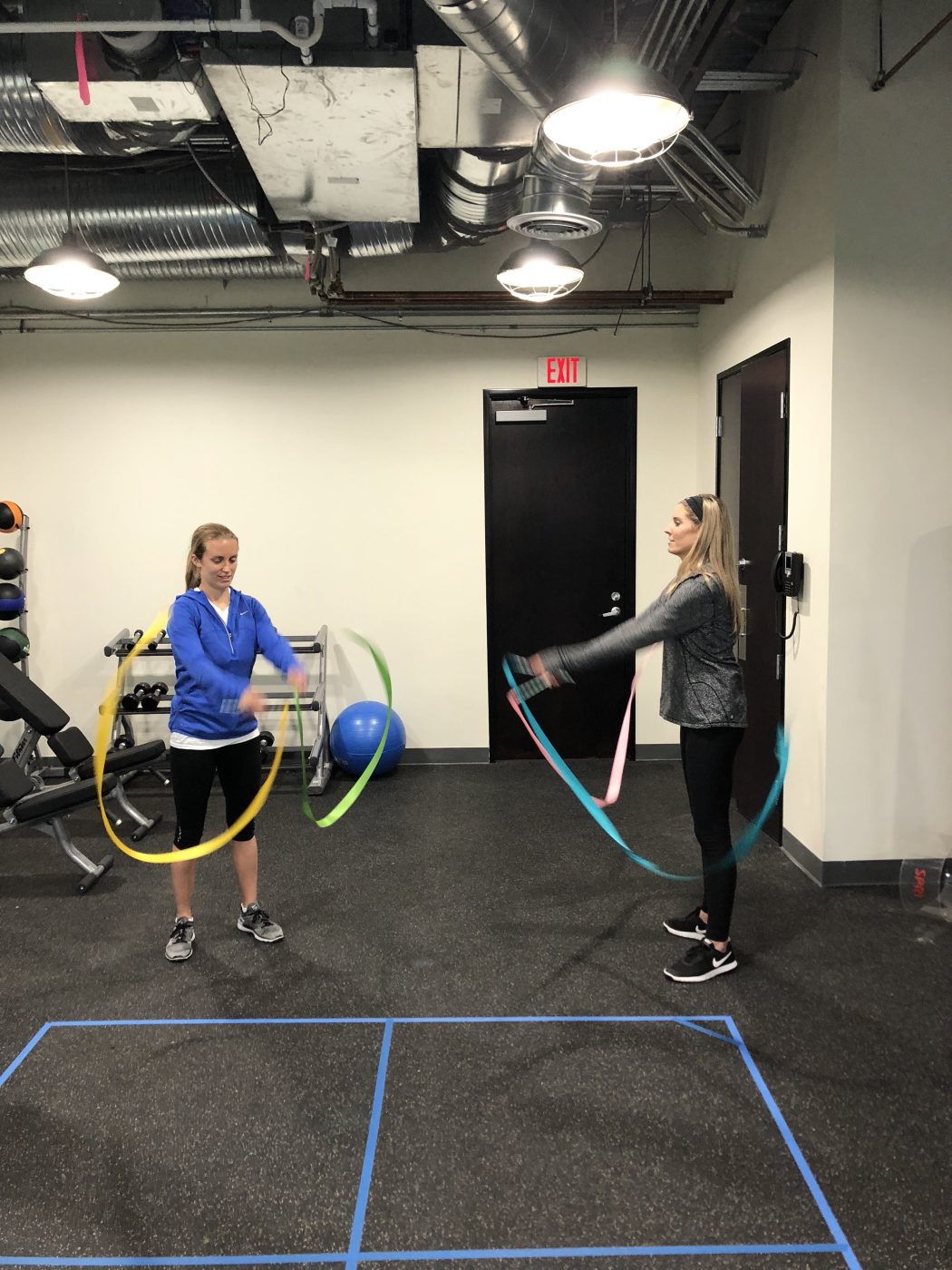Proudly serving Southern California, Montecatini Eating Disorder Treatment Center has helped transform the lives of females, ages 12 and up, struggling with eating disorders and co-occurring OCD for over 30 years.
Obsessive-Compulsive Disorder Treatment
Learn more about co-occurring OCD treatment at Montecatini Eating Disorder Treatment Center in Southern California
The intrusive obsessions that drive the compulsive thoughts or actions that affect those who suffer from obsessive-compulsive disorder, or OCD, can make healthy, daily functioning seemingly impossible. Symptoms of Obsessive-Compulsive Disorder, especially when they are severe, can lead to the development of, or exacerbate current, symptoms of other mental health conditions, which can further add to the turmoil and strife that someone experiences. When a person is suffering from the devastating symptoms of an eating disorder, the resulting effects can be life-threatening. Eating disorders have the ability to severely damage an individual’s overall mental and physical health, and, when OCD symptoms are present at the same time, being able to break free from an eating disorder can be even more difficult. Fortunately, there are comprehensive treatment options that effectively address and treat the complex combination of a eating disorders and co-occurring obsessive-compulsive disorder.
At Montecatini, we know the extraordinary courage it takes to address the physical, emotional, mental, and spiritual aspects of living with an eating disorder and co-occurring obsessive-compulsive disorder. We also know how vital it is to feel safe and supported. That is why, in a serene and intimate environment, each patient’s treatment plan is customized to address her unique challenges, her unique family dynamics and history, her unique dreams for the future, and more. Our approach is collaborative and highly personalized, born out of true empathy and compassion.
We believe that no matter how long one has suffered from an eating disorder and co-occurring OCD, healing and lasting freedom from such conditions are possible. Our mission is to support you every step of the way.
Helping a Loved One
Helping a loved one get treatment for obsessive-compulsive disorder
If you have a friend, spouse, sibling, or another relative who is battling an eating disorder and co-occurring OCD, you may feel powerless against your loved one’s afflictions. You may even feel as though you are not able to provide any sort of positive impact on her life when it appears as though nothing is stronger that her symptoms. What is key to bear in mind, however, is that there is always hope. As someone who is committed to helping this important person in your life, there remains action that you can take to help your love one get treatment. The following are some things that you can do during this critical time:
- Learn all that you can about your loved one’s eating disorder. Because only a mental health professional can officially diagnose your loved one, take note of your loved one’s symptoms and consult with a professional to learn which type of eating disorder your loved one may be suffering from. During this consultation, ask about which types of treatments or specific programs have helped other women struggling with an eating disorder and look into those options. Be sure to inquire about comprehensive treatment options, as these types of programs can be effective in addressing all of your loved one’s needs.
- Familiarize yourself with obsessive-compulsive disorder, and learn how this condition impacts and is impacted by the presence of an eating disorder. In doing so, you will gain a deeper understanding of what your loved one is going through.
Next, you will want to talk with your loved one and address the following in a non-judgmental and empathetic manner:
- Your observations of your loved one’s current struggles
- Your concerns for your loved one’s wellbeing
- The importance of seeking treatment
- The list of rehab centers that you found during your research
- You intention to support your loved one before, during, and after treatment is received
It is also important to listen to what your loved one has to say about what she is experiencing, as a person who is suffering from such concerns should have her opinions be heard as well. If after this conversation your loved one agrees to seek professional care, do what you can to help her prepare for the transition into treatment.
Lastly, it is important that you also take care of yourself during this time. Your life may have been affected by your loved one’s eating disorder and co-occurring OCD, so it could be helpful to seek support or engage in some type of therapy of your own.
Why Consider Treatment
Why consider treatment for OCD
When a woman is battling an eating disorder, she will likely need the support and care of dedicated professionals who are well-versed in treating such a condition. If that same woman is also suffering simultaneously from OCD, specialized treatment is paramount in order for her achieve the healing she needs. While the symptoms of an eating disorder, such as anorexia, bulimia, or binge-eating disorder, can be devastating in their own right, grappling with co-occurring OCD can make said symptoms even more devastating. An individual struggling with both conditions can develop rigid thought patterns and behaviors that can further damage her health. Allowing both of these concerns to persist for the long-term, will, unfortunately, result in life-threatening health risks and an overall deterioration in her mental health. Job loss with resulting financial difficulties, family discord, and social withdrawal and isolation are all probable outcomes if rehab for an eating disorder and co-occurring OCD remain is not sought. These effects, however, can be avoided. By partaking in comprehensive care that addresses the symptoms of an eating disorder and obsessive-compulsive disorder at the same time, a woman can begin to blossom into a healthy, happy, and recovered person.
Why consider Montecatini
Eating disorders are progressive and debilitating illnesses that, when left untreated, have the highest mortality rate of any mental illness. Depending on which eating disorder a person struggles with, she may suffer from malnutrition, obesity, organ damage, diabetes, and developmental problems, as well as other mental health disorders. Because of their pernicious and systemic nature, it is not enough to merely treat the physiological symptoms of an eating disorder. Instead, a person must also receive care for the co-occurring psychological issues that may cause her to return to her unhealthy eating behaviors. If treatment is to be truly successful in the long-term, it is important that each person receives a full spectrum of physiological and psychological treatment. At Montecatini:
- Treatment is provided in a warm, family-like atmosphere.
- Programming is supplied by staff who demonstrate true empathy.
- Customized, multi-dimensional rehab plans are created for each patient.
- Skill-building opportunities are provided so that patients can learn to integrate healthy behaviors into daily living.
- Personalized, consistent care is afforded to each patient.
- Comprehensive family support and therapy are integral parts of treatment at Montecatini.
- Simultaneous treatment for co-occurring disorders is available.
- Renowned medical and psychiatric management round out the therapeutic services we offer.
- Nutrition therapy is factored into each patient’s treatment in order to help her reestablish a healthy relationship with food.
- A full continuum of care is offered in order to ensure each patient’s long-term recovery.
At Montecatini, we believe that no matter how long you have suffered from an eating disorder, recovery is possible and hope is manifested daily as we work together in support of your long-term healing and inner-peace.
Types of Treatment
Types of OCD treatment offered at Montecatini Eating Disorder Treatment Center
Since treating our very first patient in 1991, Montecatini has helped inspire and transform the lives of hundreds of women. We are nationally recognized as a leading provider of eating disorder treatment and we are dedicated to helping our patients resume their lives as healthy, joyful individuals who are ready to live to their fullest potential. Women between the ages of 16 and 55 can heal in our residential, partial hospitalization, and intensive outpatient programs. These programs are designed to help our patients overcome anorexia nervosa, bulimia nervosa, or binge-eating disorder, as well as co-occurring mental health concerns such as obsessive-compulsive disorder.
Montecatini is located just three miles from the Pacific Coastline in picturesque Carlsbad, California. The center itself exudes the comfort and safety akin to being at home, and our staff puts forth every effort to ensure that the atmosphere we create is both peaceful and conducive to recovery. Each patient is treated with the utmost respect and dignity, and her care will be personalized to her unique history, challenges, life experiences, and needs.
Our staff of passionate and devoted professionals, many of whom have overcome their own struggles with eating disorders, work in close collaboration with each patient who comes to us for treatment. By creating personalized plans for each person who chooses to heal with us, we are able to provide the highest quality of care while honoring the individuality of each patient. Depending upon the outcome of an initial assessment, patients may have the following interventions incorporated into their customized treatment plans as they work towards overcoming an eating disorder and co-occurring obsessive-compulsive disorder:
Medical care: For patients who are medically stable, yet still require additional care for their physical health as they navigate the recovery process, Montecatini is pleased to offer renowned medical care. As a distinguished provider of eating disorder treatment, we recognize that the physical health of our patients can be compromised by the presence of an eating disorder. We also partner with specialists in San Diego to ensure our patients’ medical needs are appropriately met.
Medication management: When a patient comes to us battling a mental health condition, such as OCD, in addition to an eating disorder, they may benefit from the inclusion of certain medication(s). Our psychiatrist is available to meet with patients once per week to assess medication needs, prescribe medication, and adjust dosages as needed. Physician’s assistants and nurses are also available to monitor the effectiveness of any medication that is prescribed and to ensure that patients are adhering to their medication regimens.
Individual therapy: Individual therapy occurs three times per week. Each patient meets with her assigned primary therapist in a one-on-one setting, which provides an excellent forum to assess progress and to discuss setbacks and successes that have occurred during treatment.
Family therapy: Each patient’s family members are invited to participate in family therapy sessions while their loved one is receiving treatment. This treatment method, which is offered once per week unless otherwise indicated, is designed to heal emotional wounds and promote unity among our patients and their primary support networks.
Group therapy: Offered up to five times per day, group therapy is a key component of treatment at Montecatini. Led by therapists, registered dietitians, nurses, patient assistants, yoga instructors, and art therapists, group therapy covers a wide range of topics that can further the recovery process and provides an optimal setting for patients to gain support and encouragement from staff members and other patients. Groups that may be incorporated into a patient’s treatment plan as she works towards recovering from an eating disorder and co-occurring OCD may include the following:
- NIA
- Spirituality/12-Step group
- Family weekend incentives
- Food and feelings group
- Mindfulness/meditation
- Integrated care group that is focused on substance use
- Exposure therapy
- Action planning
- Body image
- Expressive arts therapy
- Dialectical behavior therapy (DBT)
- Interpersonal process group
- Cognitive-behavioral therapy (CBT)
- Relapse prevention
- Yoga
- Nutrition counseling and education group
- Outside 12-Step group
- Menu planning and meal preparation
Experiential therapy: In order to help our patients nurture the mind-body connection and apply learned skills in real-world settings, at Montecatini, we are proud to offer a number of experiential therapy opportunities. Experiential therapies complement the other therapeutic interventions we provide and typically take place once per week. Depending on the patient’s needs, the following may be part of her personalized treatment plan as she works towards overcoming her eating disorder and co-occurring obsessive-compulsive disorder:
- Restaurant outings
- Grocery shopping
- Beach trips
- Clothes shopping
- Group dinners
- Challenge food outings
Our experienced staff members, many of whom have specialized training in therapeutic techniques and treating a myriad of co-occurring conditions, including OCD, assess patients’ needs on an ongoing basis and can recommend additional interventions if they are determined to be conducive to a patient’s recovery.
Because we realize that recovery from an eating disorder and co-occurring obsessive-compulsive disorder does not end with the completion of residential treatment, Montecatini purposefully begins preparing our patients for discharge on the day they are admitted to our program. Many of our patients transition to our partial hospitalization program (PHP) after completing our residential treatment, and then step down to our intensive outpatient program (IOP) after completing PHP. Each patient’s primary therapist determines and coordinates the most appropriate follow-up and aftercare services, and alumni of our program are welcome to attend our weekly support groups and Alumni Events and Celebrations for as long as they wish. Our goal is to help our patients return to lives that are not only functional, but joyful and deeply supported as well.

























